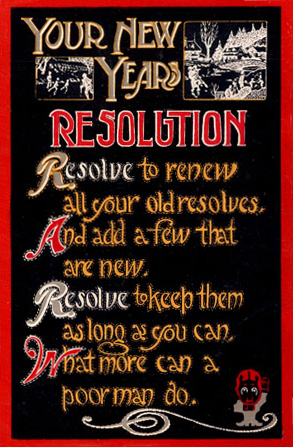Airports. Vacation spots. Subway commutes. Sunday. For whatever reason, even into the most well-read literary life a little twaddle reading does fall. At the risk of surrendering any and all professional credibility, the Fiction Writers Review editorial staff kindly confessed to their favorite guilty pleasure reads. And they don’t plan on giving them up for their New Year’s resolution.
Brandon (Assistant Editor): Slog comments. Someone from NPR once said, “online comments are the digital equivalent of the loudest drunk in the bar.” The Slog, Seattle’s cleverly vulgar news and culture blog, gets pretty surly around closing time (especially when race and class come up). Because the staff writers play a fast and loose game of this-happened-that-happened-here’s-what-I-think-about-it, the commenters follow suit, going on whole-hearted, half-baked rants and diatribes. With almost nil conversational continuity, the comments section reads like the transcript of a preschool playground, but with big words and swears. Non sequiturs. Ad hominem attacks. I love it for its freeform absurdity; I look down my nose at it for its untamed Jerry Springer-like boorishness. The whole attraction is completely paradoxical. Oh, and I don’t live in Seattle anymore, which makes it all the more irrelevant. Aside from Dan Savage, I really have no reason to read it. But I do. And I’m guilty. And I’m pleasured. And that’s okay. In fact, I just read a fascinating blurb/poll results/litany of snarkishly serious comments about the mercurial qualities of Seattle rain.
Celeste (Editor-at-Large): I read PEOPLE Magazine. There. I said it. It’s time for me to stop feeling guilty about it. Yes, it’s 97.8% pictures of famous people, their ridiculous clothing, and their bizzarely named offspring—but it is also great fodder for a writer interested in pop culture (as I firmly believe all writers should be). There are the human interest stories that can serve as story-starters—such as the blind woman who trains seeing-eye dogs, or the family who befriends the transplant recipient of their dead daughter’s heart. There is actual book coverage, which can either provide a useful kick in the pants (“What? THAT book is getting covered in PEOPLE?“) or glimmers of hope for literary fiction (“Hey! THAT book got covered in PEOPLE!“). But most importantly, even the glossiest shots of Brangelina and their brood raise questions for me: Why are we so fascinated by them—in what ways do they, even obliquely, connect to our inner selves? And what is it like to be these people? Those kinds of questions are really at the heart of fiction.
Lee (Editor-at-Large): Movie reviews. Now that might seem like a non-guilty pleasure, until I reveal that the movie review is the first thing I read in any magazine, regardless of intent to ever see the film. In fact, I love negative reviews of movies that even the biggest celluloid hound might consider skipping. In the past 18 months I’ve seen exactly 3 movies in the theater, one was Mission: Impossible – Ghost Protocol. Yes, I wanted to pull an Oedipus on my eyeballs halfway through, don’t ask how it made the cut. The problem: seeing a movie in New York and paying a babysitter–even if you spring for the 99-cent slice pre-theatre supper–rivals the cost of heli-skiing. But ask my opinion on Rust and Bone or Prometheus and I’ve got an opinion, a wholly-untouched-by-the-troublesome-detail-of-actually-having-seen-the-film opinion. How many New Yorkers have I “read” by flipping to Anthony Lane flaying some sex-and-drugs fueled indie flick and skipped the fiction? You don’t want to know. It’s storytelling on a bigger stage, with more bars to entry than the average short story, and I’m fascinated by what fails, and what–improbably–works.
Rebecca (Assistant Editor): Advice columns. I read them all. I read Ann Landers while I ate my cereal every morning before school from age eight to eighteen, when I started reading her online. Not that the advice was so great– I just like seeing problems big and small grossly simplified into a tidy package. Since Ann’s death, I’ve picked up Carolyn Hax, Dear Prudence, Dear Sugar, Miss Manners, Ask a _____ on The Hairpin, Savage Love, Social Q’s, and The Ethicist (Randy and Chuck, but not the waffler in between). In college, I was a research intern for an advice column in a national magazine where most of the questions were made up by the editors, since reader-submitted questions were usually too bizarrely specific or incoherent. But this did not lessen my interest. A hypothetical problem for one person is a real problem for someone else. I like to think they’ve made me less myopic about my own problems, but this is probably not the case. What I’ve learned from reading advice for twenty years is that people are confounded, constantly, by everyday life. Actually, I think advice columns may have made me a fiction writer. What is fiction except creating problems for imaginary people, and then trying to solve them?
Leah (Assistant Editor): Whenever I return to my parents’ house on holidays, I am promptly whipped with a bout of insomnia. The only solution is to re-read the 1998 edition of Our Bodies, Ourselves, the inscriptions in my high school yearbooks from people I don’t remember (“hey girl never change K.I.T. luv ya”), and all the Little House books. I don’t feel good about any of it, except for the parts in Little House on the Prairie where Laura Ingalls Wilder slyly teaches her readers how to do all sorts of pioneer activities, like constructing a latch for a log cabin door and coloring winter butter yellow. Putting in an hour at the butter churn, come to think of it, might be a better method for getting to sleep.






